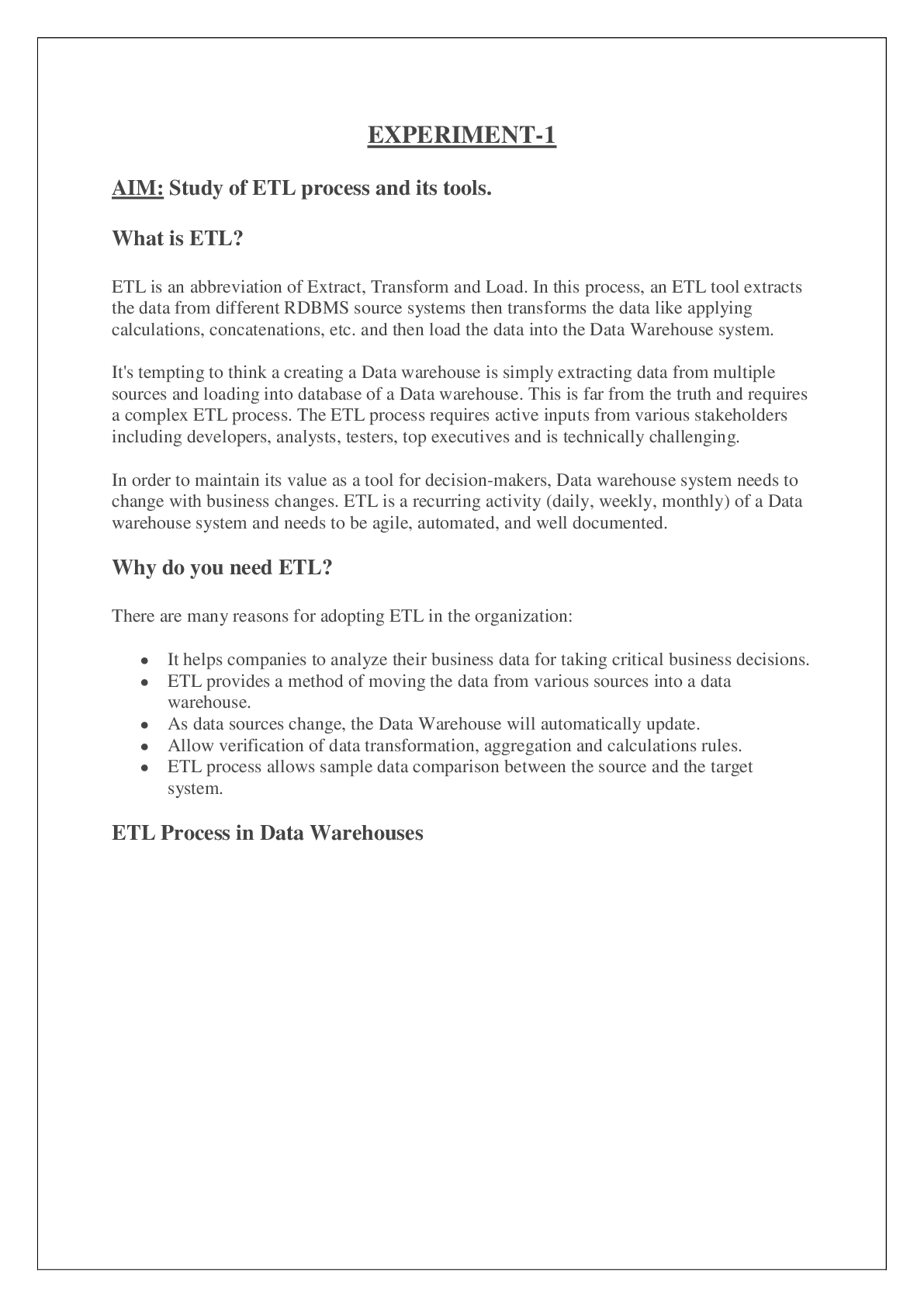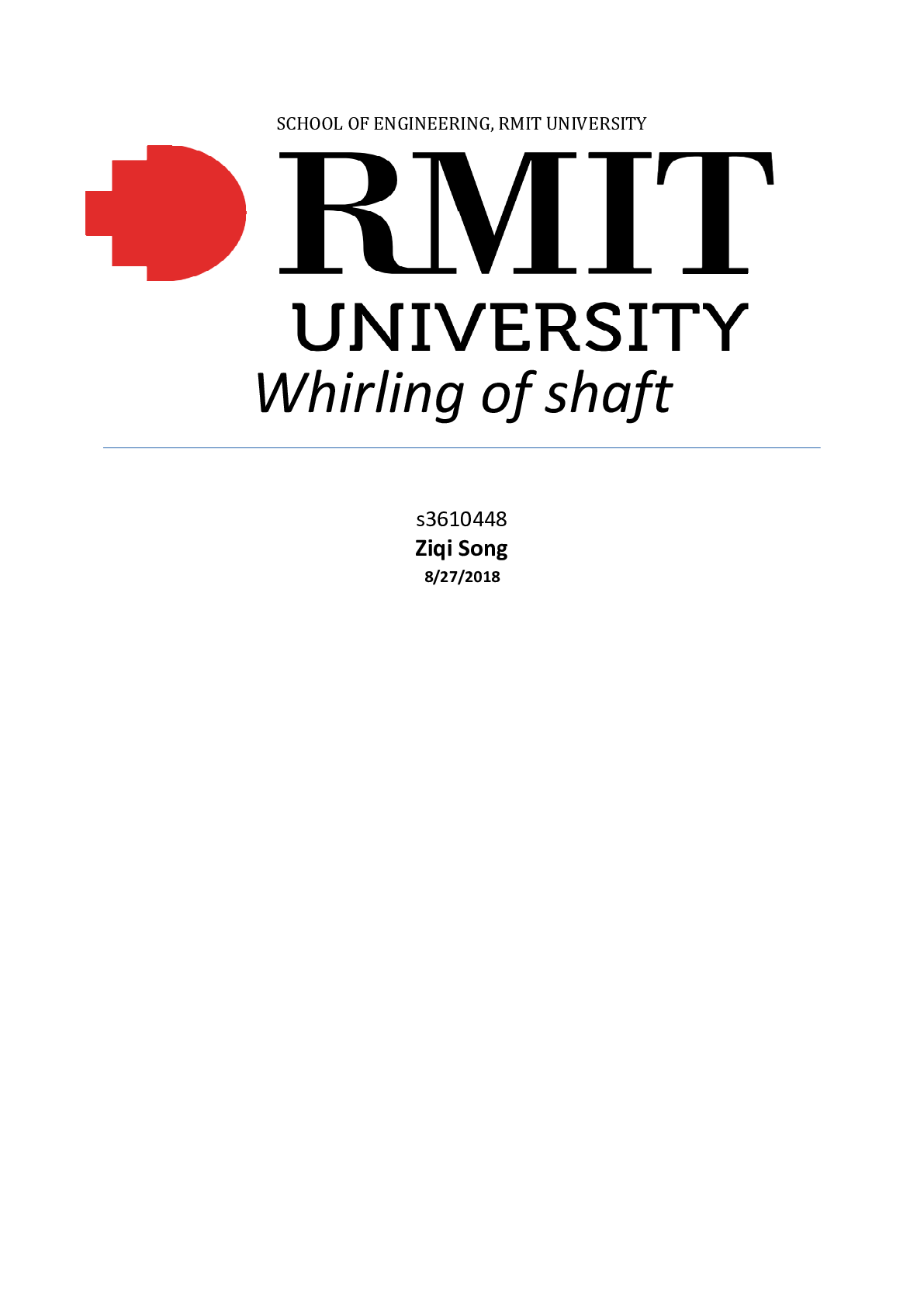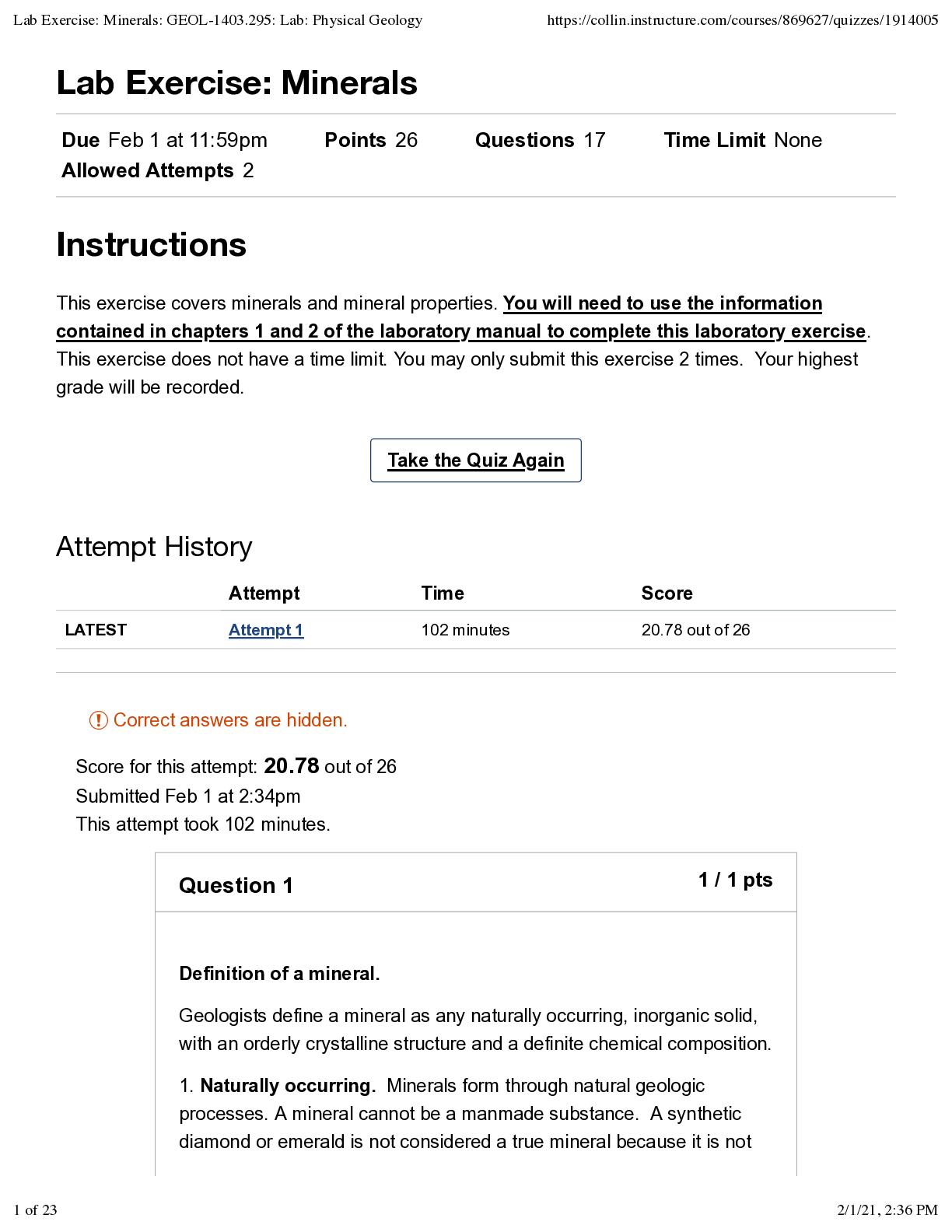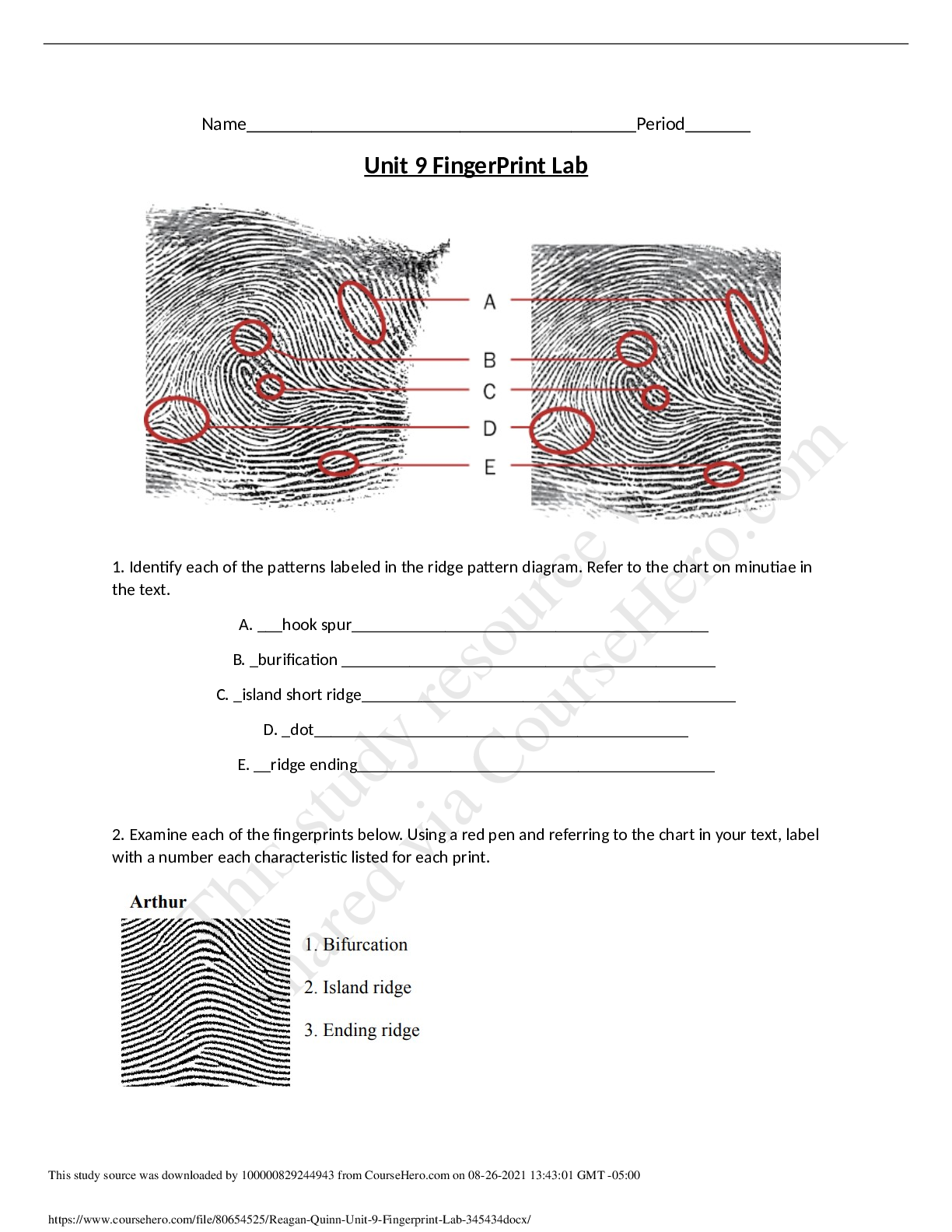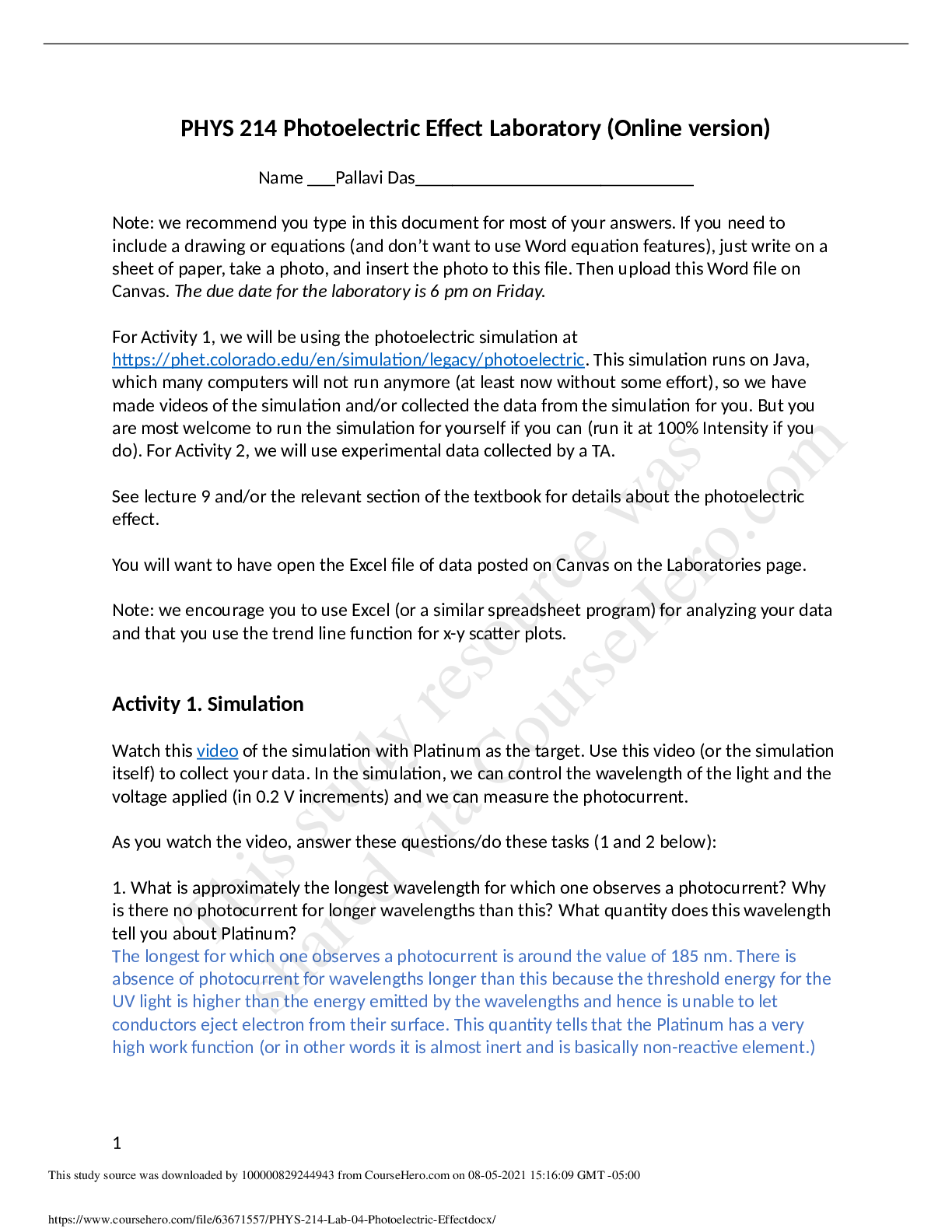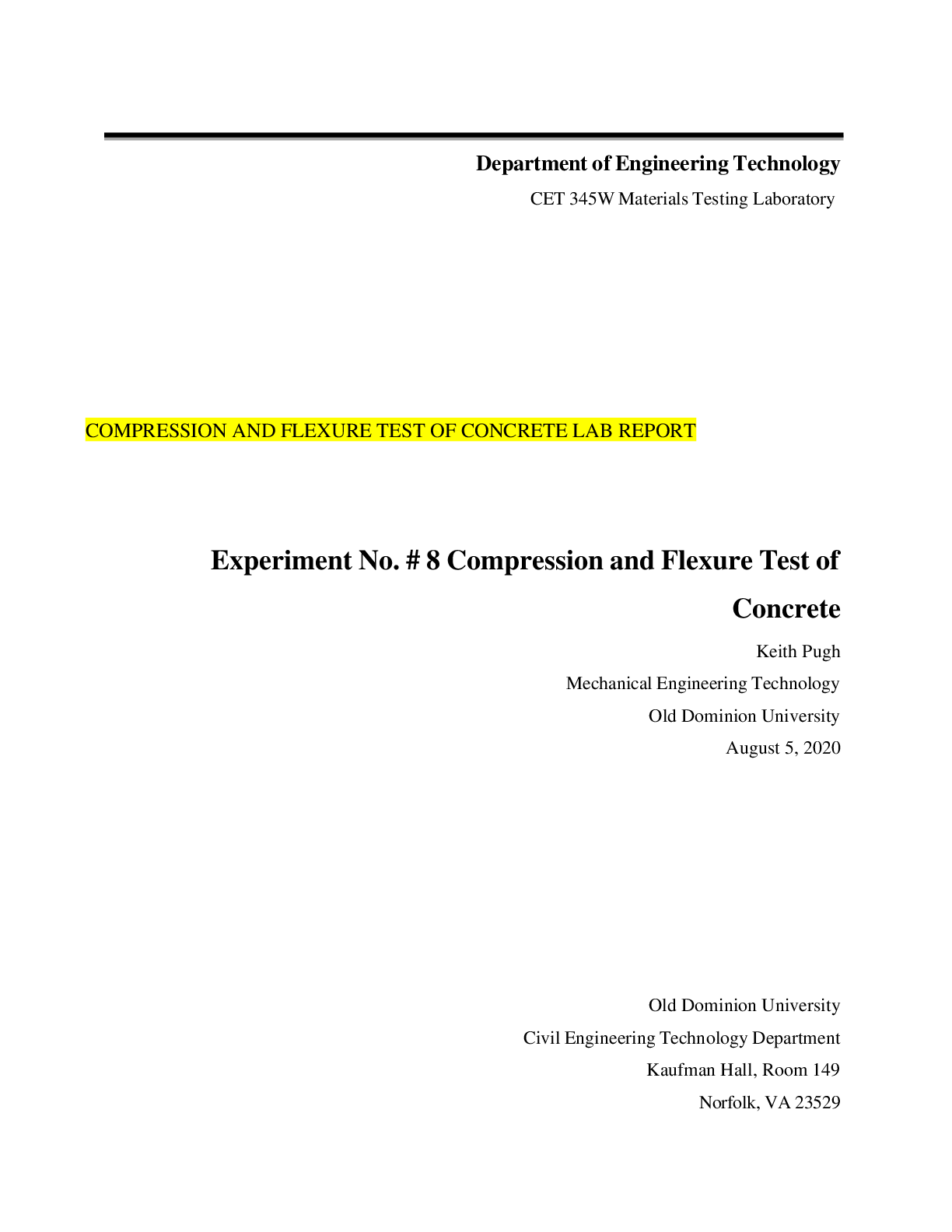Mechanical Engineering > Lab Report > Compression and Flexure Test of Concrete LAB REPORT (All)
Compression and Flexure Test of Concrete LAB REPORT
Document Content and Description Below
Table of Contents 1. Summary …………………………………………….…………………………… 2 2. Procedure ……….…………………………………………………�... ��…………… 3 3. Equipment ……………………..………………….……………………………… 4 4. Experiment Requirements ….……..………………………………………………. 7 5. Required Data ……………..…….………………….…………………………….. 8 6. Sample Calculations …..……..…….……………….…………………………….. 13 7. Sketches/Graphs ……………..…….……………….…………………………….. 15 8. Conclusions/Analysis …………………………….………………………………. 172 1. Summary This test is aim to teach students how to do compression and flexure test of concrete. The students will have to test unreinforced concrete cylinders and reinforced concrete beams. Students will create the mix required to achieve a minimum concrete compressive strength. To achieve this, the right proportion of ingredients must be used. Pour the mix of concrete into the cylinder molds and the beam molds. Let the concrete harden for up to 21 – 27 days. In Phase 1, students will have to assemble the beam mold to prepare for the Concrete pour. Lubricate the Beam Mold by spraying WD-40 inside so the Concrete can be easily removed. Measure and record the depth/width/length in inches of the mold. Reinforce the Concrete with #3 Rebar Assembly and suspended with clearance on each side and parallel inside the Beam Mold. Place the Rebar Assembly in the Beam Mold. Measure and record the length and bottom of the Beam Mold to the center of the rebar. Prepare the Concrete for pouring by pouring the Concrete Mix into the Concrete Mixing Barrel. Moisten the Concrete Mix with 1.9 liters of water per 60 lb bag. Use two bags of Concrete Mix for the experiment. Use the shovel to mix the Concrete Mix and water. Add Concrete to the cone and use Steel Rebar to make sure no voids in the Concrete. The firm Concrete will be ready for a 4,000 psi compressive strength. Lift the Cone and conduct the Slump Test. Prepare the Beam Mold with Concrete Mix. Pour the Concrete into Cylinder 1 and Cylinder 2 to prepare the Cylinder Molds for testing. In Phase 2, students will be using the solid sulfur material to create end caps for the cylinders. The oven will be used to heat up the sulfur material and melt it. Take a scope of the liquid sulfur compound and pour it slowly on to the base of the base. The base will fit the 4x8 Concrete Cylinder that was created. Slide the cylinder down on the base until the compound will come out of the perimeter. Wait until it solidifies for 30-45 seconds. Repeat the process on the other side of cylinder. Once it hardens, remove the cylinder from the base and tap off the excess sulfur around it with a wrench. This process is to be done outside in a controlled area due to the toxic fumes of the sulfur. In Phase 3, the students will be testing the 4”x8” Concrete Cylinders and 6”x6”x 36.25” Concrete Beam. Students will also be recording the deformation. Be able to predict the maximum load of the cylinders in compression. Also, predict the maximum load of the beam in bending. Use the support beam to hold the reinforced concrete in place. Set up the beam center of the Concrete. Make sure the top surface is in contact with the load in the middle area. Essentially, students will be looking for the area of fracture. Afterwards, students will be taking pictures of fracture. Afterwards, students will experiment with the cylinders by placing it on the Testing Machine vertically. Students will have to record the maximum force of the cylinders. A slump test will be conducted at the site to determine the workability of the mix and other important properties. Students will then compare the predicted theoretical capacities with the experimental results. Measure the deflections and observe failure patterns. Students will learn to understand the behavior of concrete as a structural material. In both tests, students will collect data at various loading intervals and ultimately write up a professional written report following industry standards. The student will compare the theoretical predicted capacity against the experimental results [Show More]
Last updated: 1 year ago
Preview 1 out of 18 pages
Instant download
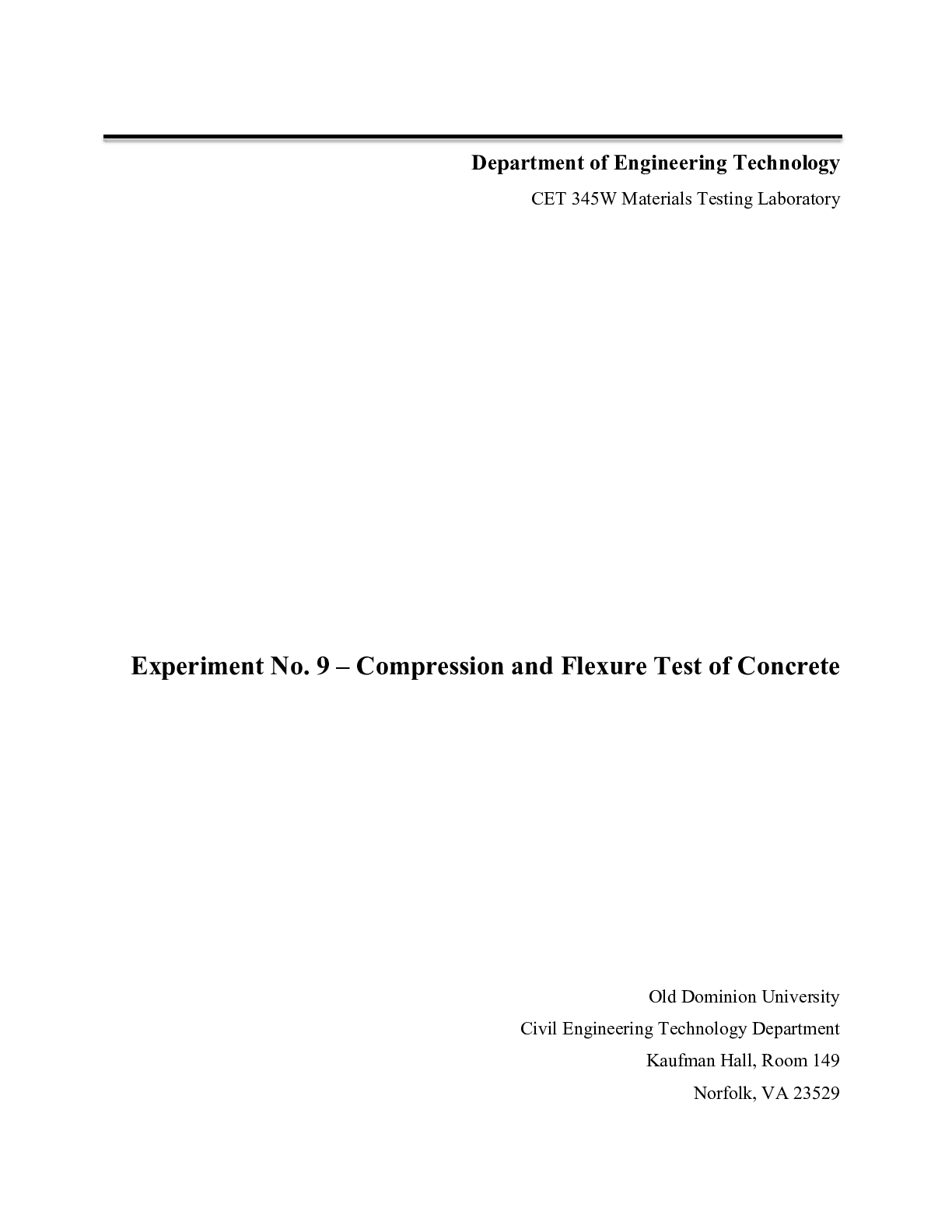
Buy this document to get the full access instantly
Instant Download Access after purchase
Add to cartInstant download
Reviews( 0 )
Document information
Connected school, study & course
About the document
Uploaded On
Jun 24, 2021
Number of pages
18
Written in
Additional information
This document has been written for:
Uploaded
Jun 24, 2021
Downloads
1
Views
89


